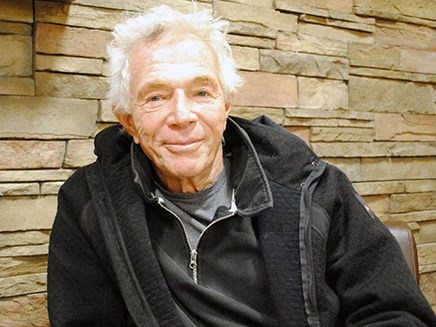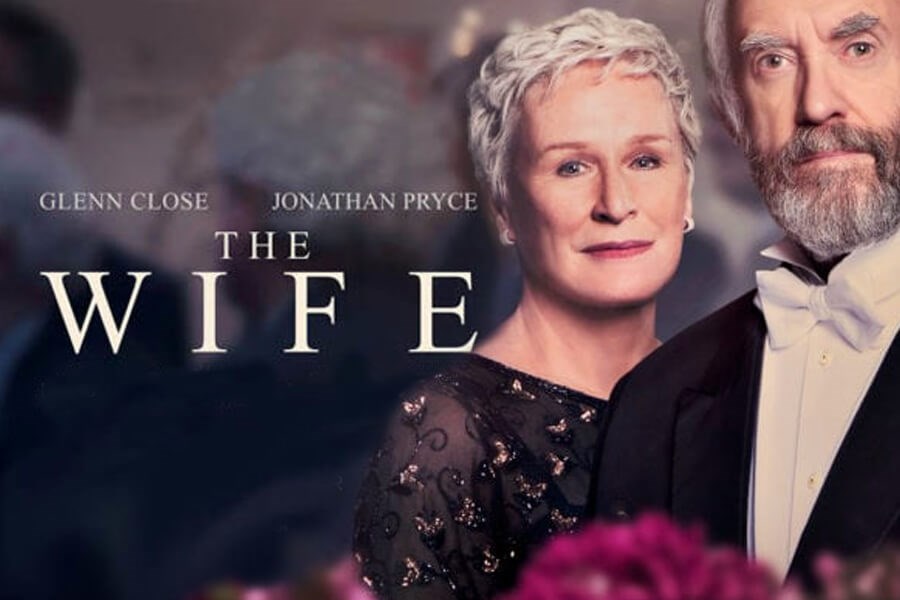
Locals know how it works on Saturday afternoons: Get to the Festival Theatre at about 1 p.m. Line up with some friends and get the conversation started. When the doors open at 1:30 a.m., put your coat on a seat to reserve your favourite spot, and then go back out into the lobby for a sip and a sup.
These are the Shaw Festival Film Series rituals. And yes, there’s a movie in there too.
“What has become its real centrepiece is maybe not so much the movies, but the social community feel,” says Stephen Levy, founder and director of the series.
Of course the films themselves are relevant and important, he affirms. Levy spends 10 months of the year selecting and chasing down the films that are shown weekly between December and February — every year for thirteen years now.
Levy and his wife Ria moved to town from Toronto via California almost 20 years ago. “We used to come to Niagara-on-the-Lake to see plays at the Shaw,” the youthful 80-year-old recounts. “One afternoon we were seeing a show at the Festival Theatre. During the intermission we stood on the back patio and looked out and said, ‘Why not move here?’ We bought our house that afternoon.”
He loved the sense of community, but as an actor and film producer, he found he really missed seeing foreign and independent films. “The only films you could see around here were blockbusters in St. Catharines or Niagara Falls,” Levy recalls. He decided to approach the Shaw festival about using the Royal George theatre as a cinema in the off-season. The George was built in 1915 to entertain the troops, and Levy thought it fitting to put it back to use as a film house.
“I thought the most difficult thing would be to get the films,” Levy says. “That turned out to be the easiest part.”
He approached the Shaw Festival with his idea, and was given a hard no.
Perhaps using the skills he learned selling aluminum siding in his youth, Levy didn’t give up. “I don’t know why I thought I should try again, but a couple of years later there was a new regime at the Shaw, so I spoke to them — and they were all for it,” he says. There were two conditions: They couldn’t offer the Royal George theatre, because it wasn’t equipped with heating, and this was planned for the winter months — but the Festival Theatre was available, being empty for several months between seasons. Problem solved. But, they would not supply the screen and projector required, and estimated the cost for both at $75,000.
Levy, undaunted, reached out to Carol Walker on the advice of some friends. “They said she loved film, and was well-connected within the community.” Walker was just the ticket: “Through her help we raised the money necessary to buy the screen and projector.”
Now to source the films. Levy approached the Toronto International Film Festival. “I thought TIFF would be the perfect source—not for films from their own festival, but for their connections to distributors.”
Levy says he went to the organizers of TIFF and said, “I’m trying… I’d like… is there any way…?” The response surprised him. “They said sure, you can access anything you want.” It turns out they were just launching a mandate to reach out to smaller communities.
“It’s been a joy,” says Levy. “I enjoy choosing the films and feeling the community thing — it’s like giving back to the community, but it’s also giving to me. I get an ego rush in picking the films.”
His criteria? “One, that I like the film. Two, taking into consideration the overall audience — which is changing from an older demographic to a younger one, more open to subtitles,” he says. And they must be entertaining and well made.
A local element has been added last year and this, with Barbara Tranter’s short film series Historical Gossip being screened before some of the films. Tranter’s films focus on storied locals such as Blanche Quinn, Norm Howe and Donald Combe.
The film series has shrunk slightly this year, with the cancellation of the documentary component. The treasured-by-many Saturday afternoons also came under threat this year, but patrons and Shaw supporters were up in arms, and the film series survives. “The beat goes on,” says Levy.
A schedule of upcoming films can be found at shawfest.com/films. Tickets can be purchased online and at the Shaw Festival box office.



